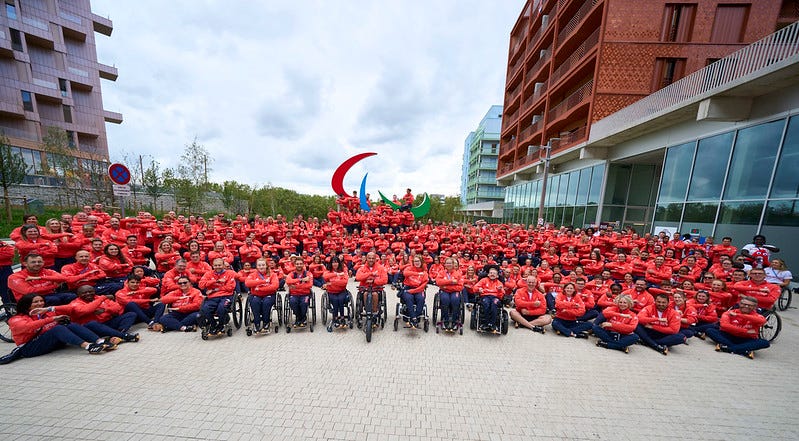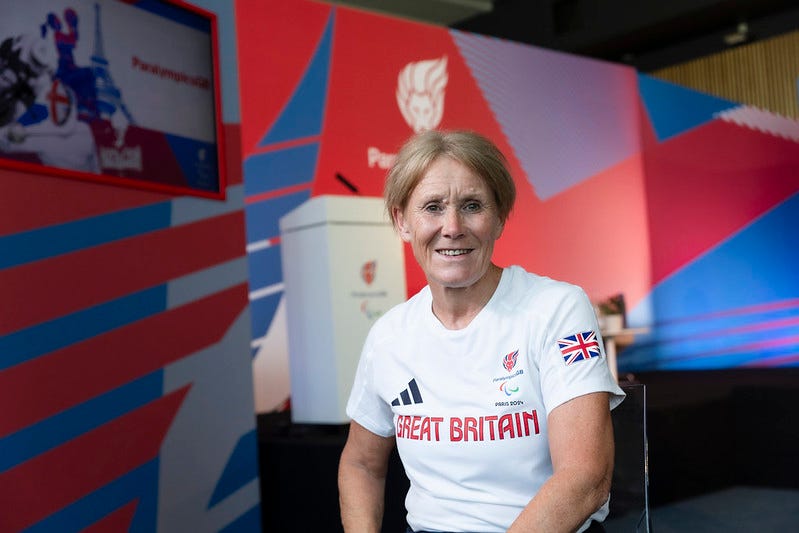The streets surrounding the Stade de France might still carry a waft of post-fireworks smoke, local residents might still be experiencing hallucinatory echoes of the electro bass thump that pounded through the ears of athletes, volunteers and spectators on Sunday night as the Paris 2024 Paralympics drew to a close. They were a Games deserving celebration, but not without a little critical reflection.

The Paralympics are not only an incredibly special opportunity to celebrate disabled talent, but also to raise awareness about disability rights around the world. Before we get too giddy about the record-breaking success of ParalympicsGB with their 124 medals across 18 sports (49 gold, 44 silver and 31 bronze), the highest behind only China, let’s take a minute to reflect on the wider global picture. ParalympicsGB performs so well - yes due to the innate talent of our athletes, but also because they benefit from a system that nurtures their potential.
At an early press conference during the Games, UK Sport and ParalympicsGB reminded us of the various ways in which they support their performance-pathway para athletes. Sports often hinge on the luck of the day, but Paris 2024 Chef de Mission Penny Briscoe was proud of ParalympicsGB’s efforts to always be “the best prepared team”.
That preparation relies on the National Lottery and Exchequer funding that enables eligible athletes to train full-time and receive expert coaching, equipment, physio, sport psychologists etcetera. All positive, important and made possible by £385 of investment for the Paris 2024 Olympic and Paralympic cycle, distributed by UK Sport. But how many of the 168 National Paralympic Committees at the 2024 Paralympics can say that their athletes enjoy the same?
Following a question about doping risks, I asked ParalympicsGB’s Chef de Mission Benny Briscoe whether a ‘clean’ games is necessarily a fair games? Her answer was one of aspirational optimism:
“We’re a developing movement, and the more that we can show what an incredible movement it is, the more potential we have to draw in more support.
“If we have a fantastic games in Paris let’s hope that those nations that aren’t necessarily as well supported as we are, [their] governments see the potential of para sport, they see the potential of disabled people in their nations and they respond in a positive way - both in terms of supporting sport and in terms of supporting more inclusive societies.”
The Paralympic Games are without doubt inspiring, but does this extend to the triggering of inclusion revolutions in entire societies and nations? Even in Britain, home of the first Paralympic Games at Stoke Mandeville, there are calls for improvement. Just 24 hours after their final medal win of the Games (a silver for canoeist Jack Eyers), ParalympicsGB issued an open letter to the British Prime Minister about their ‘Equal Play’ campaign, asking him to ‘prevent the next generation of children being left on the sidelines in the birthplace of the Paralympic movement’. If Britain, with her laudable legacy and millions of pounds for para sport every year, is still advocating for better grass-roots access - what’s picture elsewhere in the world?

The link - or disparity - between a ‘clean’ Games and broader social inequalities, was highlighted by TV-presenter and former wheelchair basketball player Ade Adepitan, at a news preview ahead of this panoramic summer of sport. On location in Kenya he came across athletes living in contexts which make the prospect of doping seem, if not acceptable, somewhat understandable. Adepitan said:
“When you talk about temptation, some of these people come from nothing. They live in villages where there’s no running water, where people can barely feed themselves, and see running as a chance to change their lives.”
“When unscrupulous people come up to them and say ‘take some of this, you can win a few races, make a few thousand pounds and take your whole village out of poverty.’ - there’s a completely different mindset of taking drugs that we don’t even look at.”
“If you want to take drugs out of sport and make things fairer, you’ve got to make the world fairer.”
Add in the additional factor of impairment, with the demonisation and barriers to employment that it too often come with it, and the temptation for disabled athletes from impoverished backgrounds might reasonably be even greater. A rare chance to improve their lives, and those of the people around them.
I cast no aspersions on any of the developing nations who sent athletes to the Paris 2024 Paralympics - a highest ever of 168 delegations in total. I’ve not heard any murmurs of performance enhancing drugs or cheating in any form during these Games, aside from that one unfortunate rowing incident.
But as we take a step back and reflect on the 2024 Paralympics and their legacy, we have to move beyond the surface glitter of national medal counts to ask - in what contexts were these medals won? How did these athletes get here?

Medals aren’t just decided on the day of competition, but in the years of training, dedication and development that lead to it. Accolades are earned behind the scenes and merely collected on the field of play. The catalyst that sets an athlete on the path to glory might be as humble as a taster session or P.E. class but without a nurturing support system to bridge the gap, talent alone is never enough.



